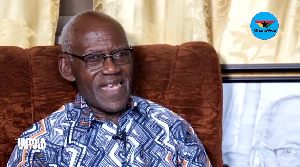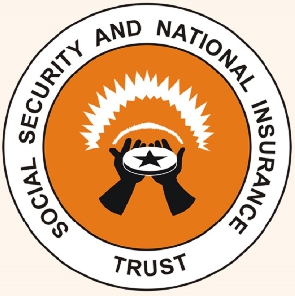- Home - News
- TWI News | TV
- Polls
- Year In Review
- News Archive
- Crime & Punishment
- Politics
- Regional
- Editorial
- Health
- Ghanaians Abroad
- Tabloid
- Africa
- Religion
- Election 2020
- Coronavirus
- News Videos | TV
- Photo Archives
- News Headlines
- Press Release
Business News of Monday, 4 October 2010
Source: The Enquirer
Kufuor Bought B+ Ratings With Eurobond Cash
In AD 2007, when the Kufuor government sponsored a team, including Ken Ofori-Atta of Databank for a road-show on the international capital market to raise $750million, through EUROBONDS, they flashed two B+ ratings as a sign of Ghana’s credit worthiness.
The two ‘B+’ ratings had just been secured from two supposedly independent international rating agencies, namely: Standard and Poor’s (S&P) and Fitch Ratings Services.
Three years on, it has emerged that the New Patriotic Party (NPP) Government, under President John Agyekum Kufuor, connived with Standard and Poor’s and Fitch to secure the ‘B+’ ratings to raise the $750 million from the issued bonds, after which the two agencies were quietly paid almost half-a-million United States dollars.
On November 20, 2007, less than two months after the release of funds from the sovereign bonds, the NPP government paid Standard and Poor’s $275,000.00 and on the same day, paid Fitch Ratings Limited $150,000.00 ‘for Consultancy Services rendered’, out of the $750 million .
Interestingly, three months after the NPP lost power to the National Democratic Congress (NDC), Fitch downgraded Ghana to ‘B’ in their rating of March 2009, which ranking remained until September 24, 2010, when it revised it to ‘B+.’
Meanwhile, a month earlier (i.e. August 2010), Standard and Poor’s in a rating that analysts, including Razia Khan of Standard Chartered, Standard Bank and the Centre for Policy Analysis (CEPA), have all described as baseless, also downgraded Ghana to ‘B’ at a time when evidence on the ground proved contrary to the reasoning they had given for arriving at that conclusion.
INDEPENDENCE
The two rating agencies both claim to be independent.
S & P Standard and Poor’s, for instance, claims on its website to be an “independent provider of credit ratings,” and that its “independent equity research business is among the world’s leading providers of independent investment information, offering fundamental coverage on approximately 2,000 stocks.” S&P claims further that its Ratings Services “mission is to provide high-quality, objective, independent, and rigorous analytical information to the marketplace.”
It claims additionally, that it “endeavors to conduct the rating and surveillance processes in a manner that is transparent and credible and that also maintains the integrity and independence of such processes in order to avoid any compromise by conflicts of interest, abuse of confidential information, or other undue influences.”
FITCH
Fitch, on its part, also claims to be “committed to providing the world’s credit markets with independent and prospective credit opinions, research, and data.” Fitch continues that to protect its “credibility and reputation, employees must diligently comply with the various securities laws and take every precaution to avoid conflicts of interest or any appearance of a conflict of interest.” Observers have raised questions as to how the two institutions, who are expected to be independent are on the payroll of the same countries they are to rate. Industry watchers say for quietly pocketing cash from the Ghana government, the two rating agencies compromised their independence and can therefore not be said to be independent, since financially they appear to be dependent on their paymaster, which in this case is the Ghana Government.
BACKGROUND
In early 2007, the Cabinet of President John Agyekum Kufuor, under the NPP administration, approved the issuance of $750 million bonds on the international bonds market. The amount was to implement the country’s medium term investment programme.
The decision was subsequently approved by a Parliamentary Resolution on July 30, 2007.
The $750 million bonds, which matures seven years from today, October 4, 2017 were issued at an annual interest rate of 8.5%, which some financial analysts considered to be one of the highest rates of borrowing at the time.
For now, the government of Ghana coughs up over $70million a year, as interest payments alone on the issued bonds and would be doing so till the maturity date in 2017, when it would be required to pay the principal of $750 million, together with any interest that may have accrued at the time.











